About the Conference
The international scientific conference HumanTech Summit aims to provide a comprehensive overview of the current knowledge on human-technology relations.
The conference will cover a variety of issues, including artificial intelligence (AI), digital transformation, virtual reality (VR), metaverse, robotics, cyborgization, and the Internet of Things. Conference sessions will address not only the role of new technologies in education, medicine, and arts, but also the threats posed by technological omnipresence.
During the session on virtual and augmented reality, the participants will be able to experience VR/AR technologies used in various areas, from medicine to art.
We have invited prominent scientists from all over the world to present the results of their research on human-technology interaction.
During the conference, we will hold a hackathon. Registration is already open!
The event is organized by the HumanTech Center at SWPS University. It is a part of the HumanTech Meetings (HTM) project, which links academia and research with business and industry from Poland and abroad. To date, we have organized 18 HTM online meetings. HumanTech Summit is one of two offline conferences organized as part of the project.
Lectures will be held in English and Polish and will be translated simultaneously.
Visit the conference event page on Facebook
Please note: Companies/start-ups interested in showcasing their VR/AR/MR products during the morning session on the second day of the conference, please contact us via email (This email address is being protected from spambots. You need JavaScript enabled to view it.).
HumanTech Summit will be held stationary at SWPS University in Warsaw, but part of the conference will be conducted in virtual reality. Therefore, we will be able to simultaneously demonstrate and discuss the possibilities of today's immersive technologies.
The registration fee is €35 and covers the catering for all coffee and lunch breaks. Online participation is free of charge.
The number of on-site participants is limited to 200.
Conference participants are welcome to attend a networking event on December 9. The entrance fee is €18.
Guidelines for poster presentations: Poster presentations can report research analysis (completed or work-in-progress) or describe emerging ideas. Posters will be displayed on a 180 cm high x 120 cm wide free-standing bulletin board. Thus, the most convenient printed format is vertical (posters can be smaller than the given size). The content should be concise and visually appealing. Please consider including a QR code on your poster that links to a digital version of the poster, study protocol, preprint, or website.
Keynote Speakers

Tara Behrend
Is an Associate Professor of Psychological Sciences at Purdue University, where she directs the Workplaces and Virtual Environments lab. She is a Program Director for the Science of Organizations and Future of Work programs at the National Science Foundation. She is currently serving as president-elect of the Society for Industrial and Organizational Psychology. Tara is also a Fellow of the Association for Psychological Science. She is an industrial and organizational psychologist with expertise in how technology affects the world of work.
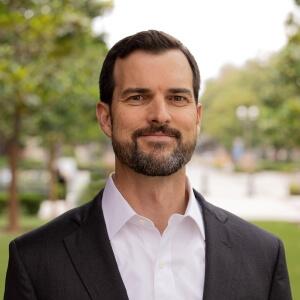
Nathanael Fast
Is Jorge Paulo and Susanna Lemann Chair in Entrepreneurship at the USC Marshall School of Business. He is also Director of the Neely Center for Ethical Leadership and Decision Making at USC and Co-Director of the Psychology of Technology Institute. He is an award-winning teacher and researcher, and his scholarly work has been widely covered in leading media outlets. He studies the psychological underpinnings of hierarchy, networks, and technology adoption. His research examines how power and status hierarchies shape decision-making, how people’s identities and conversational styles shape their professional networks, and how AI shapes the future.
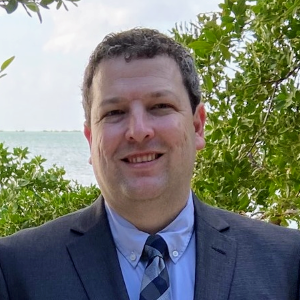
H. Andrew Schwartz
Is Director of the Human Language Analysis Lab at Stony Brook University (SBU), which is a part of the State University of New York (SUNY) system. He is also the Principal Investigator and co-founder of the World Well-Being Project, a multi-disciplinary consortium between the University of Pennsylvania, Stony Brook University, and Stanford University, pioneering scientific techniques for measuring psychological well-being and physical health based on the analysis of language in social media. Andrew is an active researcher in the fields of AI-natural language processing, psychology, and health informatics. He created the Differential Language Analysis ToolKit (DLATK), which has been used in over 100 studies and by various tech companies. In 2020, he received the DARPA Young Faculty Award. His research has been widely covered in the press, including The New York Times, USA Today, and The Washington Post.
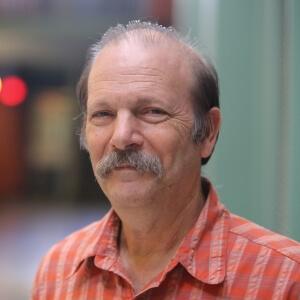
Moshe Y. Vardi
Is a University Professor and the George Distinguished Service Professor in Computational Engineering at Rice University. He authored and co-authored over 700 publications, including two books: Reasoning about Knowledge and Finite Model Theory and Its Applications. He is a Senior Editor of the Communications of the ACM, the premier publication in the field of computing. He is the recipient of numerous awards, including the IBM Outstanding Innovation Award, the Knuth Prize, the IEEE Computer Society Goode Award, the EATCS Distinguished Achievements Award, and several ACM (Association for Computing Machinery) awards. He is a Guggenheim Fellow, a fellow of several societies, and a member of several honoral academies. He holds eight honorary doctorates.
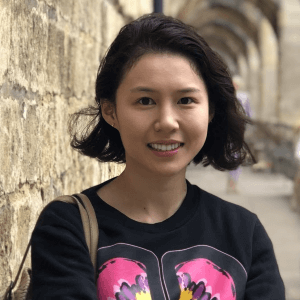
Youyou Wu
Is an Assistant Professor of Psychology at University College London (UCL). Dr. Wu employs computational methods like machine learning and natural language processing to study topics in psychology, e.g., personality expression. She is also interested in metascience and methodology, particularly reproducibility. She has used machine learning to predict which scientific findings in psychology are reproducible and trustworthy. Her work was published in several journals, including PNAS, Nature Communications, and Psychological Science. In addition, the results of her studies have been covered by global media outlets like BBC, New York Times, and The Economist.
Accommodation Tips
Moxy Warsaw Praga, ul. Ząbkowska 29
The Moxy Warsaw Praga hotel is located on the premises of the 19th-century factory complex of the former "Koneser" vodka factory, a present vibrant cultural and artistic center of Warsaw's Praga district. The design of the hotel is inspired by industrial style. Nearby attractions include Vistula Boulevards, the Warsaw Zoo, and the National Stadium. SWPS University is a 30-minute walk away.
You can book your accommodation with a special discount via this link. The discount is valid until November 28.
Tulip Residences, ul. Targowa 5
With the National Stadium subway station, SKM light rail for quick access to Chopin Airport, and bicycle trails nearby, the Tulip Residences hotel is an ideal starting point for excursions to the Praga backstreets and tours of the Warsaw Old Town. SWPS University is a 20-minute walk away from the hotel.
To book your accommodation at a discount enter "SWPS" in the "add special code" field.
Organizers
In 2021, the HumanTech Meetings project was granted an additional PLN 250,000 (EUR 52 828,75) by the Ministry of Education and Science (MEiN), as part of the funding scheme “Społeczna odpowiedzialność nauki – Popularyzacja nauki i promocja sportu” (Social responsibility of science – Popularization of science and sport), (project no. SONP/SN/514650/2021), project duration: 2022-2023, total value: PLN 305,472 (EUR 65 251,67).
The event is co-funded by the Ministry of Science and Higher Education, under the “Innovation Incubator 4.0” funding scheme.
Event held under the honorary auspices of
Event held under the auspices of
Partners
Organizing Committee
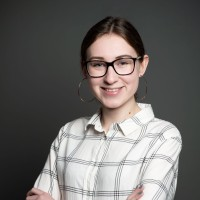
Secretary of the Conference
Partnership
If you are interested in cooperation with our conference, please e-mail Kinga Gołębiewska at This email address is being protected from spambots. You need JavaScript enabled to view it..
Location
SWPS University in Warsaw, Chodakowska 19/31, Warsaw, Poland